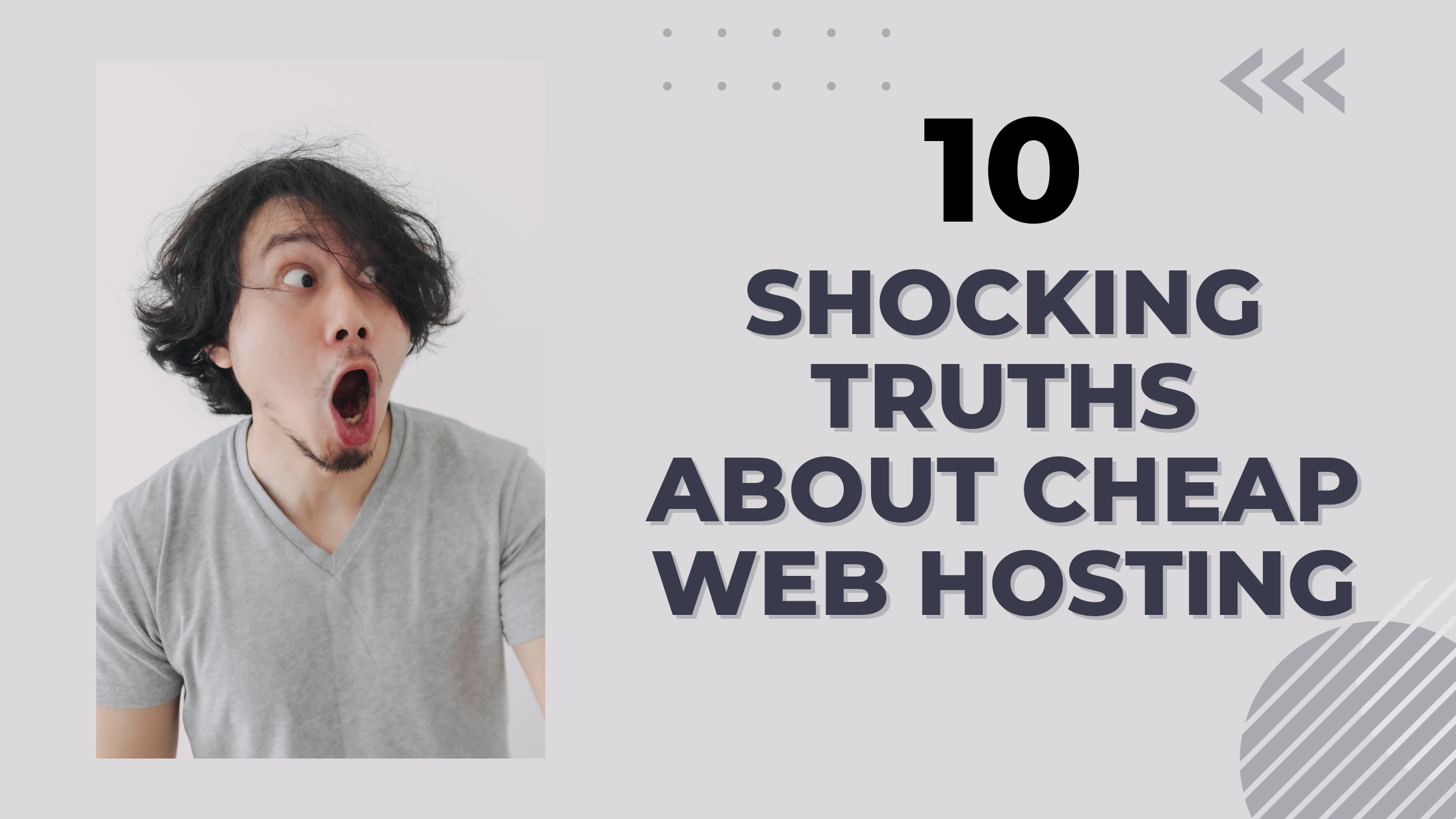
Cheap web hosting services often lure customers with extremely low introductory prices, but these prices don’t always tell the full story.
- Introductory vs. Renewal Rates: Most hosting providers offer an initial price that’s much lower than the actual renewal cost. For instance, a plan advertised at $1.99 per month can jump to $9.99 or more after the first year.
According to a survey by Hosting Data, 76% of users reported being surprised by high renewal costs after their first term with cheap hosting providers.
- Annual Billing Requirement: Many cheap hosts require you to pay for 1-3 years upfront to lock in the low price, and once the contract is over, prices skyrocket.
- Long-term Commitment: You may be locked into a longer contract just to get that low price, often leading to hefty cancellation fees if you decide to switch early.
2. Limited Resources
Cheap hosting plans often come with minimal resources, which can severely limit your website’s performance.
- Bandwidth Restrictions: Limited bandwidth can cause your site to crash or load very slowly during high-traffic periods, affecting user experience.
- Storage Limitations: Many budget hosts cap your storage, restricting how much content, media, or data you can store. This can be problematic for blogs or e-commerce sites with high data needs.
Web Hosting Secrets Revealed found that 65% of cheap hosting users experienced slower load times, which directly impacted user engagement.
- Performance Degradation: Cheap hosts often overburden their servers, leading to slow page load times. Research shows that a 1-second delay in page load time can reduce conversions by 7% (Akamai Study).
3. Hidden Fees
The advertised low price might not be what you ultimately pay. Cheap hosting often comes with hidden fees that add up quickly.
- SSL Certificates: Some cheap hosting providers charge extra for basic SSL certificates, which are essential for securing your site. An SSL can cost an additional $10 to $100 per year.
- Backup Fees: Backups might not be included in the base package. If you want automated backups for your website, you may have to pay for an extra feature, typically costing $2 to $5 monthly.
- Domain Renewals: While some hosts offer a free domain for the first year, renewal prices for that domain may jump to $15 to $30 in the following years.
A study by WhoIsHostingThis showed that 45% of customers encountered unexpected fees on renewal or for necessary add-ons like SSL and backups.
4. Poor Customer Support
Customer service can be a major pain point with budget web hosting.
- Unresponsive Support: Cheap hosting providers often have inadequate customer support, which can mean long wait times when issues arise. In some cases, support is limited to email or ticket systems, with no phone or live chat.
- Limited Support Hours: Some providers do not offer 24/7 support, so if something goes wrong outside business hours, you’re left in the dark until the next day.
- Outsourced Support Teams: Often, support is outsourced to teams that might not have the technical expertise to resolve issues quickly.
According to TechRadar, 62% of cheap hosting customers rated the quality of support as “below expectations” due to long wait times and unresolved issues.
5. Shared Server Problems
Inexpensive hosting plans often put your website on a shared server, leading to performance issues.
- Overcrowded Servers: When hundreds or even thousands of websites share the same server, the resources (CPU, RAM, etc.) are divided among all. This can significantly slow down your site, especially during peak times.
- Noisy Neighbors: If one website on the shared server experiences a traffic spike or security issue, it can affect all other websites on the same server.
SiteGround conducted a study showing that 72% of shared hosting users experienced slowdowns due to “noisy neighbors” on their servers.
- Security Risks: If one site on the shared server is hacked, it opens the door for potential cross-site contamination, putting your website at risk as well.
6. Uptime Isn’t Guaranteed
Uptime is critical for any website. Downtime can cause significant revenue loss and hurt your reputation.
- Frequent Downtime: Cheap hosts often lack the infrastructure to provide a stable service, leading to frequent downtime. Uptime guarantees are often only 99%, which translates to more than 7 hours of downtime each month.
- No Compensation: Some budget hosts do not offer compensation for downtime, so even if your site is down for hours or days, you won’t get a refund.
Research from Pingdom shows that even a 1% decrease in uptime can lead to a loss of $5,600 per minute for e-commerce websites.
7. Security Vulnerabilities
Cheap web hosting services often cut costs by skimping on important security features.
- Lack of Firewalls and Security Patches: Many budget hosts do not offer basic security features like firewalls, automatic updates, or regular patching, leaving your site vulnerable to cyberattacks.
- DDoS Attacks: Cheap hosting services are often the target of Distributed Denial of Service (DDoS) attacks because they lack the necessary protection to prevent such attacks.
- No Malware Scanning: Without integrated malware scanning, your site is at a higher risk of getting hacked or infected.
According to Sucuri, 45% of hacked websites were on shared hosting platforms with poor security measures.
8. No Free Backups
Regular backups are essential for website safety, but they may not come free with cheap hosting plans.
- Manual Backups: Some hosts require you to manually backup your site, which can be time-consuming and risky if forgotten.
- Cost of Automated Backups: Automated backups can cost between $2 to $10 per month, adding to the total cost of hosting.
- Recovery Fees: If your site crashes and you didn’t pay for the backup feature, some hosts charge you additional fees to recover lost data.
A survey by WebsitePlanet found that 57% of users had experienced data loss due to insufficient backup solutions with their cheap hosting provider.
9. Long-Term Contracts
Cheap web hosting plans often require you to commit to long-term contracts, which can be restrictive.
- Trapping Users: To get the low price, many hosts require you to sign a 1-3 year contract. This means you could be stuck with a poor-performing service if you’re unhappy after the first few months.
- High Cancellation Fees: If you want to cancel early, you may face hefty cancellation fees, effectively locking you into the service.
- No Refunds on Long Contracts: Some hosts offer no refunds for the unused months if you decide to switch providers.
Hosting Tribunal reports that 38% of users felt trapped in long-term contracts with cheap hosting providers.
10. Limited Scalability
As your website grows, your hosting needs will change. Cheap hosting may not be able to support your website’s expansion.
- Limited Upgrade Options: Many cheap hosting plans lack scalable upgrade options, forcing you to switch to a more expensive plan with another provider.
- Traffic Spikes: If your website experiences sudden traffic growth, cheap hosts often cannot handle the increased load, resulting in site crashes.
A report by Google indicates that 53% of users abandon a mobile site that takes more than 3 seconds to load, meaning scalability is crucial as your traffic grows.
Compare Best Web Hosting Providers
Conclusion: Choosing Wisely
While the initial appeal of cheap web hosting is understandable, the hidden costs and limitations can outweigh the benefits in the long run. It’s crucial to weigh your options carefully, consider scalability, and opt for a hosting provider that offers transparent pricing, solid performance, and robust security features. As the saying goes, “You get what you pay for.” So, invest wisely in a hosting plan that aligns with your website’s growth and needs.
With the right hosting provider, you’ll avoid the pitfalls associated with cheap hosting, ensuring a smooth, secure, and scalable experience for your website and visitors alike.







